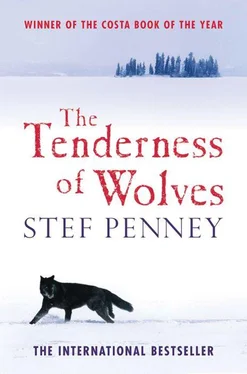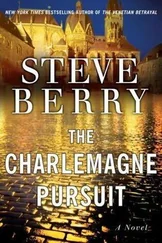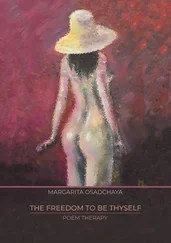It is the first time he has said her name to her face, and it makes him smile. The feel of her name in his mouth, and the sight of her face looking up at him, sears onto his heart like a fiery brand.
‘You have been the most charming company, and a welcome diversion from all this … business. I am … glad I came–I mean glad that Mackinley chose me.’
‘But I suppose you will go tomorrow, and then we will not see you again.’
‘Well … I expect the Company will need to keep an eye on things here, so … Who knows, I may be back sooner than you think.’
‘Oh. I see.’
She looks so forlorn that he is emboldened to add, ‘But, you know, what would be wonderful … is if you would write to me, and, and … let me know how things are here.’
‘You mean, like a report?’
‘Well … yes, although, I would also like to know … how things are with you. I would like to write to you, if that would be agreeable.’
‘You would like to write to me?’ She sounds charmingly surprised.
‘I would like that very much.’
There is a moment when they are breathless in the knowledge of what they are saying, and then Susannah smiles in response.
‘I would like that too.’
Donald is insanely elated, full of a power and energy he had forgotten existed. He gives thanks, urgently and silently, as, hardly knowing what he does, he rushes out of the house, finding paradoxically that he wants to be alone to celebrate his new-found happiness fully. He walks to Scott’s store, assuming that whatever goes on in Caulfield, John Scott will know about it. He bursts in through the door, trying to keep the foolish grin from his face–a man has died, after all–to see a slender, round-faced woman behind the counter. She looks up at the sound of the door and her first expression is one of fear, quickly masked by a blank neutrality.
John Scott is not there, but Mrs Scott proves nearly as helpful. Donald notices her distracted air, and tries to concentrate as she tells him that Mr Sturrock is staying in their house, and may be there now, she can’t say.
‘You’re welcome to call and see. The maid is there …’ Mrs Scott breaks off, as if she has just remembered something. ‘No, I will send a message, that would be better.’
She disappears through a door at the back. Donald stares out of the window at a sky that looks like curds and remembers Susannah’s soft mouth.
Thomas Sturrock has a way about him that Donald warms to–when told the man was a Searcher, he assumed he would be an old woodsman with coarse manners and the sort of tangy humour he has to endure at the Fort, and he is pleasantly surprised at the refined gentleman he encounters instead.
‘I wonder if I could ask, how did you end up in such a line of work?’
They are drinking Scott’s bitter coffee, in two chairs that Mrs Scott has placed by the stove. Sturrock stares into his cup with disappointment before replying.
‘I’ve done a few things in my time, and I’d written about the Indian way of life. I’ve always been a friend to the Indian, and someone knew this and asked me to help in a case where a boy had been taken. And that worked out, so other people asked me. I never set out to do it, it just came my way. Too old for it now.’
‘And the item you have come to look for, do you have any written proof that Jammet wanted you to have it?’
‘No. He wasn’t planning on getting killed last time I saw him.’
‘And you weren’t aware of any enemies he might have had?’
‘No. He would drive a hard bargain, but that’s no reason to kill a man.’
‘No, indeed.’
‘When he first showed me the bit of bone, I asked him if I could copy down the markings on it, and he could tell I was interested, so he refused, and said he would sell it to me.’
‘But you didn’t buy it then?’
‘No. I was, you see, temporarily out of funds. But he agreed to keep it until I could pay him. I have the money now, but, of course …’–he spreads his hands helplessly–‘I don’t know where it is.’
‘I will talk to Mr Knox about it. We haven’t found a will. If Mr Knox is agreeable, I dare say he could sell it to you. That is, assuming we find it.’
It suddenly occurs to Donald to wonder if Sturrock has already looked for this piece of bone. He remembers the footprints by the cabin. Three sets. Three people who came to look at the cabin last night.
‘That’s generous of you, Mr Moody. I appreciate that.’
‘What sort of thing is it? Is it something from Rome or Egypt?’
‘I’m not altogether sure what it is. It doesn’t seem to be anything like that, but that’s why I need it–I intend to take it to some museum men who know about such things.’
Donald nods, still unsure as to why Sturrock is so interested in this thing. One thing he is certain of, though, is that if someone is keenly interested in a thing, it is as well to tread warily. Could it be that Sturrock had arrived earlier and Jammet had refused to sell him the bone, so Sturrock killed him? Or had Jammet already sold it to someone else? Whichever way he adds it up, Sturrock doesn’t seem a likely killer. But it is also true that there has been no sign of this object, which clearly has a value. In which case, who has it now?
Donald leaves the store with Sturrock’s assurance that he will stay in Caulfield for the next few days. He wonders why it did not occur to him to ask about the Seton girls–perhaps because he finds it impossible to believe this gracious-mannered man is the grasping fraud portrayed by the Knoxes. He wonders–not for the first time–whether his inexperience leads him to form favourable impressions too easily. Should he be more suspicious, like Mackinley, who takes against people on principle, assuming that sooner or later they will disappoint him–and is usually proved right?
On his way down the road he sees Maria carrying a basket. He raises his hat and she smiles slightly. She seems decidedly less hostile since this morning, but he still wouldn’t have risked speaking to her had she not spoken first.
‘Mr Moody. How is the investigation proceeding?’
‘Er, slowly, thank you.’
She pauses, as if waiting for him to say something, so he finds himself saying, ‘I have just been talking to Mr Sturrock.’
She doesn’t betray surprise, nodding as if she expected it. ‘And?’
‘I thought he was charming. Educated, sensitive … not at all what I expected.’
‘I suppose he had to be charming to swindle my uncle out of all his money–there was quite a lot, I believe.’
Donald must have frowned, because she goes on: ‘I know my uncle was desperate enough to do anything, but a man of honour would have told him it was pointless to keep looking for the girls and refused his money. It would have been kinder in the long run. In the end he had neither his daughters nor anything to live on, and he … well, as good as destroyed himself. This was after my aunt died. I know it sounds terrible to say this but … I’ve always supposed they must have been eaten by wolves. Other people say so and I think they are right. Aunt and Uncle could never accept that, though.’
‘How could anyone?’
‘Is that so much worse than what they did think?’
‘I would have thought life, at any cost … is better than death.’
Maria looks at him with those appraising eyes–like a farmer assessing a horse for broken wind. She’ll never find a husband if she looks at all men like that, he thinks, irritated.
‘Perhaps the wolves saved them from a fate worse than death.’ The cliché sounds, in her mouth, like a bad joke.
‘You don’t really think so.’ He is surprised at his boldness in contradicting her.
Maria shrugs. ‘A few years ago, two children here were drowned in the bay. It was a terrible accident. Their parents grieved, of course, but they are still alive. They seem happy enough now–as happy as any of us are.’
Читать дальше












